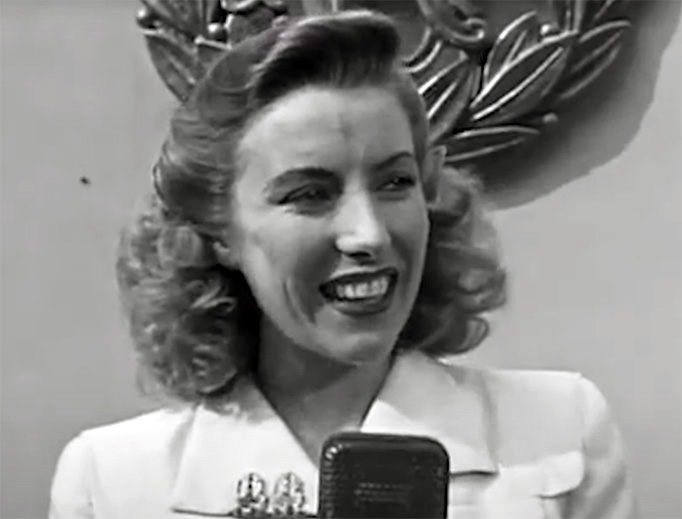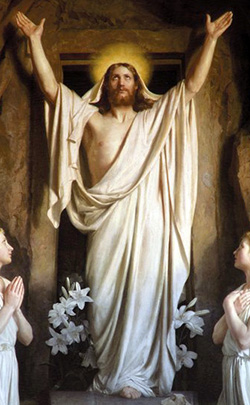We’ll Meet Again — Don’t Know Where, Don’t Know When
“Behold, I tell you a mystery. We shall not all fall asleep, but we will all be changed, in an instant, in the blink of an eye, at the last trumpet.” (1 Corinthians 15:51-52)


Well, as circumstance would have it, I was recently reminded of that consoling fact. It was prompted by the news of the passing of Vera Lynn, age 103, who, as a very young woman, may have done more for the maintenance of British morale during the darkest days of the Second World War than all the speeches of Winston Churchill. It was a single song, in fact, charged with such lovely melodic lilt that it became an overnight sensation, an anthem of real hope and confidence for countless airmen, soldiers and sailors who went off to war, not knowing if they would ever see their loved ones again.
Written in 1939, the song was called “We’ll Meet Again,” which she performed repeatedly — unforgettably — before large gatherings of servicemen, whose voices would blend in with hers, leaving an amplified impression that was unspeakably moving. Unless you were completely insensate, you did not listen to such music without choking up.
Here, then, are the salient lyrics that, along with that haunting melody, made a young Vera Lynn famous for the next 80 years:
We’ll meet again / Don’t know where / Don’t know when /
But I know we’ll meet again some sunny day /
Keep smiling through / Just like you always do /
‘Till the blue skies drive the dark clouds far away /
So will you please say hello / To the folks that I know /
Tell them I won’t be long / They’ll be happy to know
That as you saw me go / I was singing this song
We’ll meet again / Don’t know where / Don’t know when /
But I know we’ll meet again some sunny day…
To be sure, a most welcome and wonderfully upbeat piece of music. But is it true? Can we honestly believe it? Just stop and think of all those eager young Royal Air Force pilots as they listened to the music of Vera Lynn. Men who, with the most rapt attention, were mouthing words that made the most impossible promise anyone could ever imagine, which is that they would actually meet again those whom they most loved in all the world. Who can possibly guarantee an outcome like that? Will Vera Lynn? Winston Churchill? What nonsense is this? And, besides, we already know the huge percentage of those young men who would shortly perish in the Battle of Britain; indeed, among those very airmen, their voices freshly joined to the chorus, great numbers would simply not survive, they would surely die somewhere above the clouds. There would be no sunny day for them.
There is the real terror. That in looking upon the faces of those we love in life, those doomed to disappear in death, there will never be a time when we might see them again. But, then, what is the point of hope, what is it all for? That I should have to look for the last time upon the face of my dead mother, speaking a final goodbye to the one who gave me life and nurture, and know with absolute certainty that I shall never see her again? If that were so, and this lifeless thing on a marble slab were never to rise and walk again, then life for me would be such a horror and an obscenity that I would scarcely wish to go on living.
What would I not give to know, what would the families of all those dead servicemen not give to know, really to know, that in fact the dead do not stay dead? But that, thanks to an all-powerful, all-loving Providence, whose Son burst through the gate and grave of death, they become indestructibly alive in the arms of Almighty God? After all is said and done, are we not, all of us, driven by the same hope once so beautifully expressed by the poet Alfred Tennyson, who, in remembrance of the ones he loved and lost, was moved to exclaim in tones of ringing, indeed, desperate desire,
Ah Christ, that it were possible
For one short hour to see
The souls we loved, that they
might tell us
What and where they be.
Remove the Resurrection, along with the faith and the hope we have that it happened, and you are left with nothing. Only death, despair, and the dissolution of love. Which leaves no one, of course, to meet again some sunny day.
- Keywords:
- resurrection

















